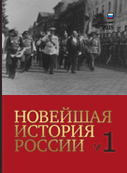
Russian Presence in France in 1920–1930s on pages of "Le Roseau d'Or"
Русское присутствие во Франции 1920–1930-х гг. на страницах журнала «Золотая трость»
Keywords: “Le Roseau d’Or”; Russian emigration; N. Berdiaev; A. Remizov; B. Zaitzev
This article is a research on cooperation of Russian emigrants with French catholic journal “Le Roseau d’Or”. Its name is taken from John’s Apocalypse and reflects the spiritual search of Russian and French intellectuals. The journal became the ground for dialogue between Russian emigrant and French cultures and presented Russian soul and Orthodoxy to French public. “Le Roseau d’Or” published in all 53 issues which included articles of prominent French and Russian intellectuals (Jacques Rivière and Pierre Lafue). Special attention was attracted to the articles of Nikolay Berdiaev, developping his idea of the new “Middle Ages”, and also to the articles of Russian emigrant poets A. Remizov and B. Zaytzev. Author analyses their articles, especially the image of Russia.
More...